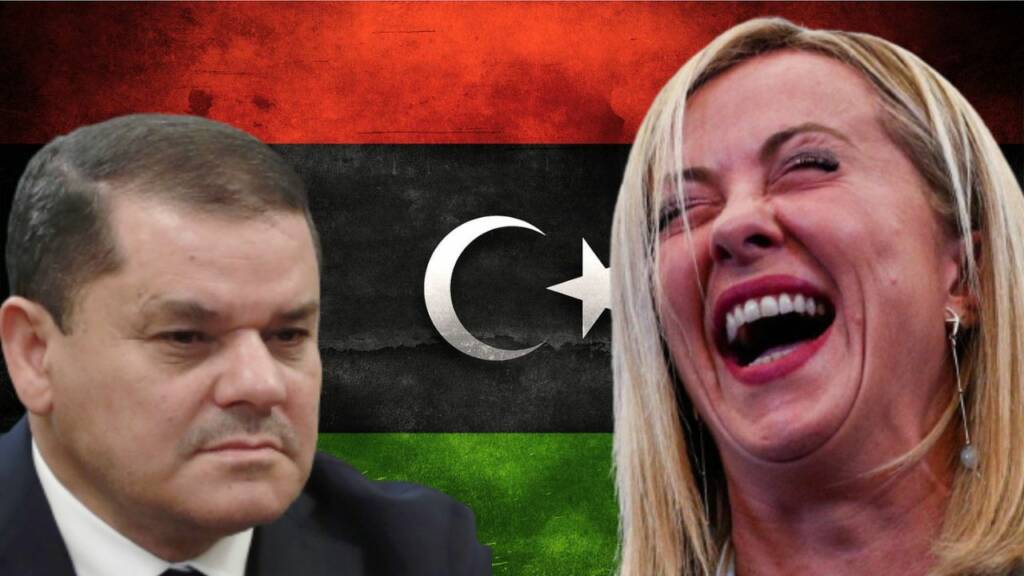In Libya, elections are yet to be held and the solution to the political crisis is nowhere in sight as of now. The NATO-backed military intervention in 2011 toppled Muammar Gaddafi and the country was split between two rival administrations in the east and the west. The US recognizes the government of the National Accord, based in Tripoli, which controls parts of the country’s west while Russia puts its support behind Khalifa Haftar-led Libyan National Army that controls eastern parts of the country. Now, after repeated calls for elections have gone in vain, there are signs that the political legitimacy of the US-backed Tripoli government is also at stake, and now it is begging for recognition.
Tripoli-based regime faces legitimacy crisis
The US-backed Tripoli government’s political vulnerability and the crisis over legitimacy have now been exposed more evidently than ever due to a gas deal with Italy. Recently, Libya’s National Oil Corporation reached an $8-billion deal with Italian energy giant ENI to develop offshore hydrocarbon sites. The National Oil Corporation of Libya has reached a deal with the energy giant of Italy ENI to “develop the oil and gas sector, by developing two offshore sites which together will be able to produce 850 million cubic feet of gas”.
Read More: Meloni shows her “Russian Love” via Libya
As per a report, the energy deal was signed between Libya’s National Oil Corporation (NOC) and Italian energy firm Eni during a visit by Italian Prime Minister Giorgia Meloni and an accompanying delegation to Tripoli. However, post the deal, the Tripoli-based Government of National Unity, GNU’s outspoken oil and gas minister Mohamed Aoun has called the deal “illegal” and also said that it “lacks equality between the Libyan and Italian sides”. He further said that his ministry was “bypassed” on the deal.
On the other hand, when the NOC chairman Farhat Bengdara was asked why Mr. Aoun had been absent from the ceremony, he responded defiantly that his company “works according to the law, and whoever sees this procedure as illegal must go before the court”.
This has given rise to a legitimacy crisis for the West backed Tripoli based government headed by Abdul Hamid Dbeibah. Now on the other hand, the eastern leader Haftar has a strong grip over power in Libya and if an election is held in Libya, there’s a possibility of Gaddafi’s son Seif-al-Islam running for President, who is backed by the Haftar government and also enjoys popular support in the country. Considering the background of these events, Dbeibah took the reigns in his hands to come across as a legitimate leader of Libya to Meloni.
Read More: Haftar calls the shot for “Election opportunity” in Libya
Further, the recent gas deal with Italian firm ENI is a threat to the Tripoli based government given that the two main Libyan gas extraction fields are located in territories controlled by the Wagner Group, or by its local partners and allies, such as Marshal Khalifa Haftar, in the east of the country. Thus, the al-Wafa field, 500 kilometres southwest of the Libyan capital Tripoli, and the al-Farag field with the largest production plant for domestic consumption are outside the central control of the GNU headed by Dbeibah. In this regard, we have previously told our readers, that the leader who has Libya’s oil & gas reserves under control is none other than Haftar.
Moreover, the closure and blockade of oil and gas fields have been almost constant since the beginning of the clashes between the eastern and the Western factions. Occasionally, these oil and gas fields have also been used as a bargaining chip and an element of pressure against the GNU by Haftar’s faction. So, the gas deal with Italy can only succeed with Haftar’s blessings. So, if Meloni needs Libya’s oil & gas, she will have to pay a price which could be to recognize and give some legitimacy to Haftar’s authority in Libya.
Read More: Haftar calls the shot for “Election opportunity” in Libya
Considering the scenario, it seems the ripple effects of this are already visible, as the GNU has called the deal “illegal” and has claimed that the GNU’s oil and gas ministry was “bypassed” on the deal. The GNU seems to have understood that although its government has so far been internationally recognized but with clear lack of domestic support, it can’t survive for long. On the other hand, Haftar, by announcing a “final chance” to hold elections has previously shown that the real power lies in his hands in Libya. Fearing this, the US-backed Tripoli government in Libya is now begging for recognition from Italy.
https://www.youtube.com/watch?v=upX08WM6OSg
